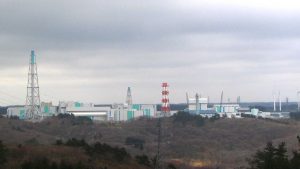
Download
Venue
Deutsches Institut für Japanstudien
Jochi Kioizaka Bldg. 2F
7-1 Kioicho, Chiyoda-ku
Tokyo 102-0094, Japan
Access
Registration Info
All are welcome to attend, but prior registration (![]() ganseforth@dijtokyo.org) is greatly appreciated.
ganseforth@dijtokyo.org) is greatly appreciated.
Local Anti-Nuclear Movements in Japan. The Diverging Cases of Maki and Rokkasho
July 19, 2017 / 6:30 P.M.
Tina Hügel
In Japan, local mayors and city councils decide on whether a nuclear facility shall be constructed in their community or not. Therefore, policy analysis on the nation state level alone cannot explain why some nuclear facilities were built, while the construction was stopped (or prevented) elsewhere. This research project analyzes and compares the cases of two local communities: the town of Maki, now a part of Niigata city, where the construction of a nuclear power plant was prevented by a citizen referendum; and Rokkasho, a small town in Aomori prefecture, which hosts one of the largest nuclear centers comprised of several nuclear facilities. In the analysis, resource mobilization theory, the framing approach and the theory of political opportunity structure are combined in the triangular model of social movement analysis (Hasegawa Koichi 2011). Expert interviews, mostly with former activists in Maki and Aomori, complement the data gathered by literature analysis.
At first glance, the basic conditions for both case studies seem to be similar. As in other countries, economically disadvantaged and underpopulated areas were selected for construction. However, if we take a closer look at the local level, we can account for differences e.g. in the economic situation of both communities and the openness of local politics for outside actors like social movements. The study of specific local conditions and of the interplay of local and national politics can shed light on the critical factors that lead to the adoption of high risk technologies in some places and their rejection in others. Moreover, it can thus contribute to an understanding of Japanese nuclear politics in comparison to other countries.
Tina Hügel is a Ph.D. student at the department of Japanese Studies at Martin Luther University Halle-Wittenberg, specializing in Japanese social movements, modern society and politics. At present, she holds a scholarship of the German Institute for Japanese Studies and conducts field research in Niigata and Aomori prefecture.
Picture: CC BY-SA 3.0 | wikimedia/Nife
Download: ![]() Event report (PDF, 72KB)
Event report (PDF, 72KB)